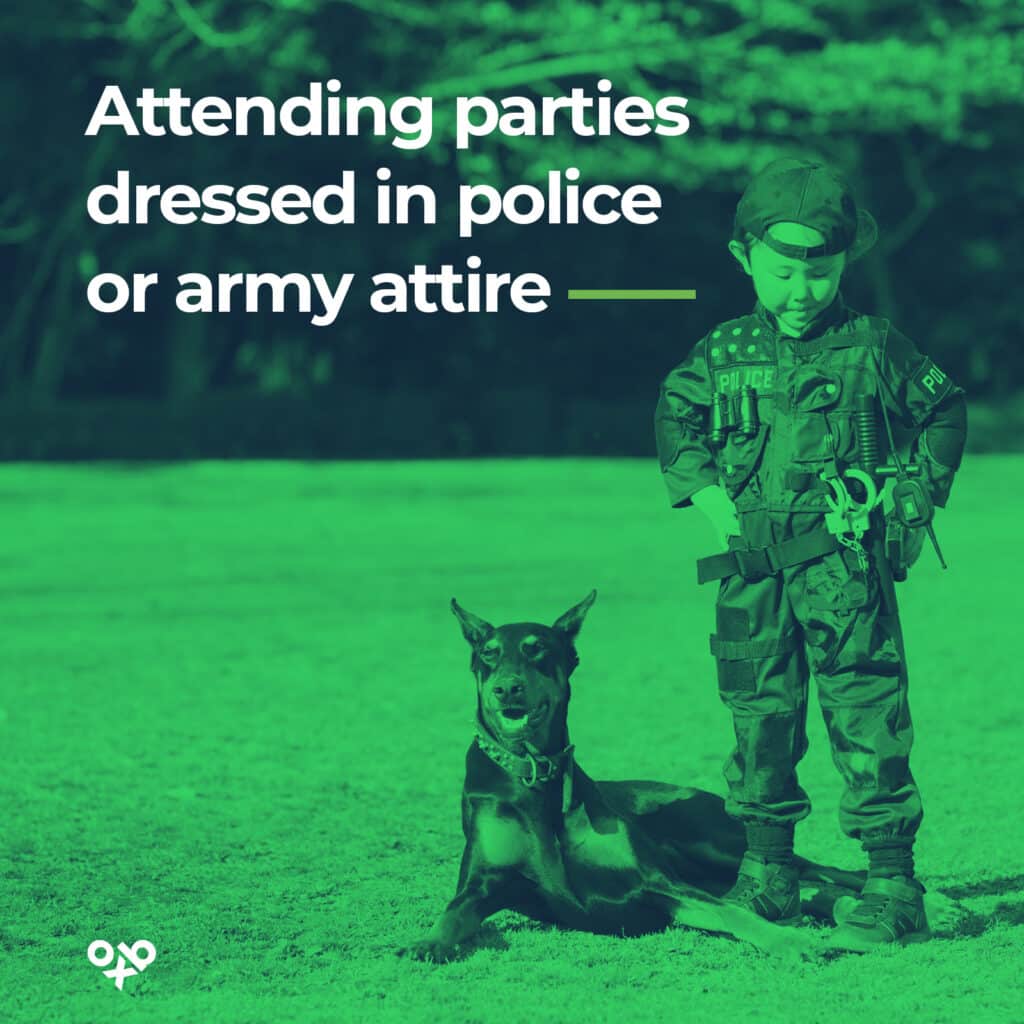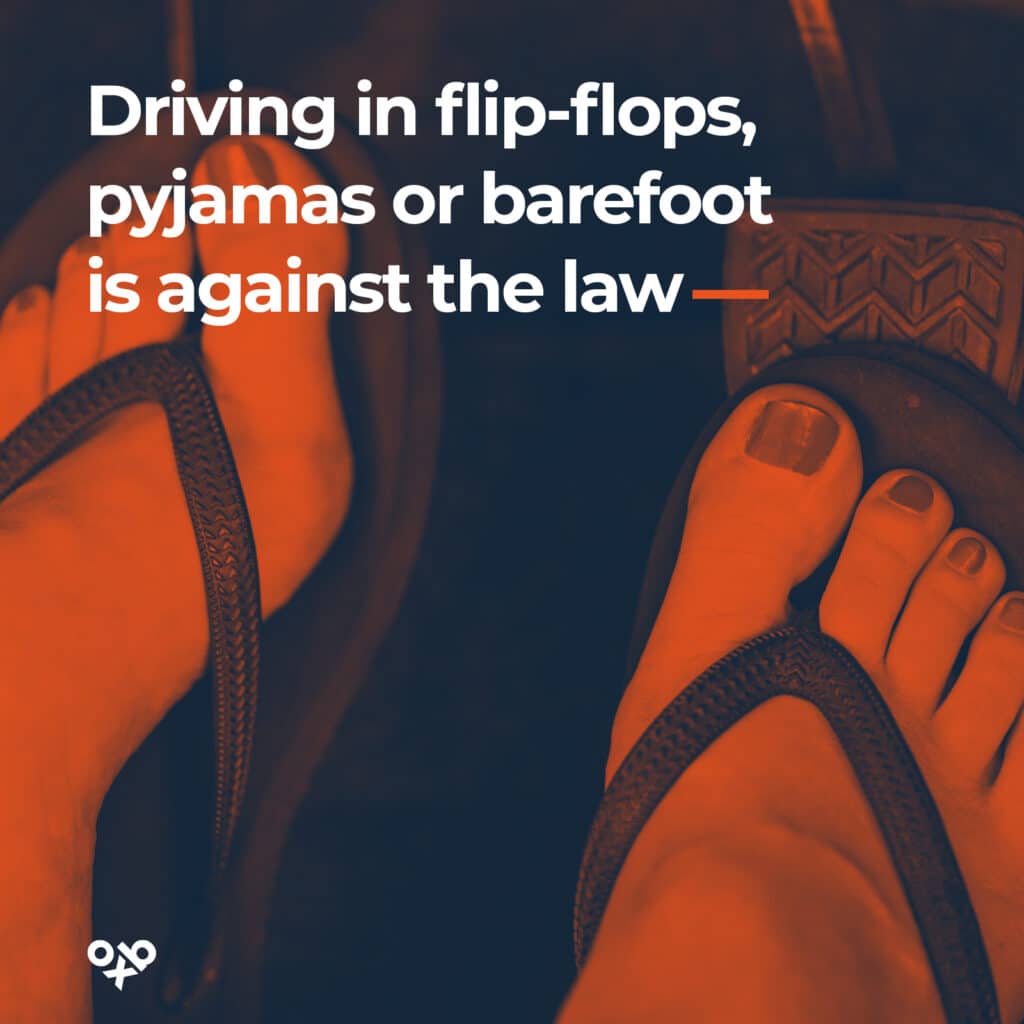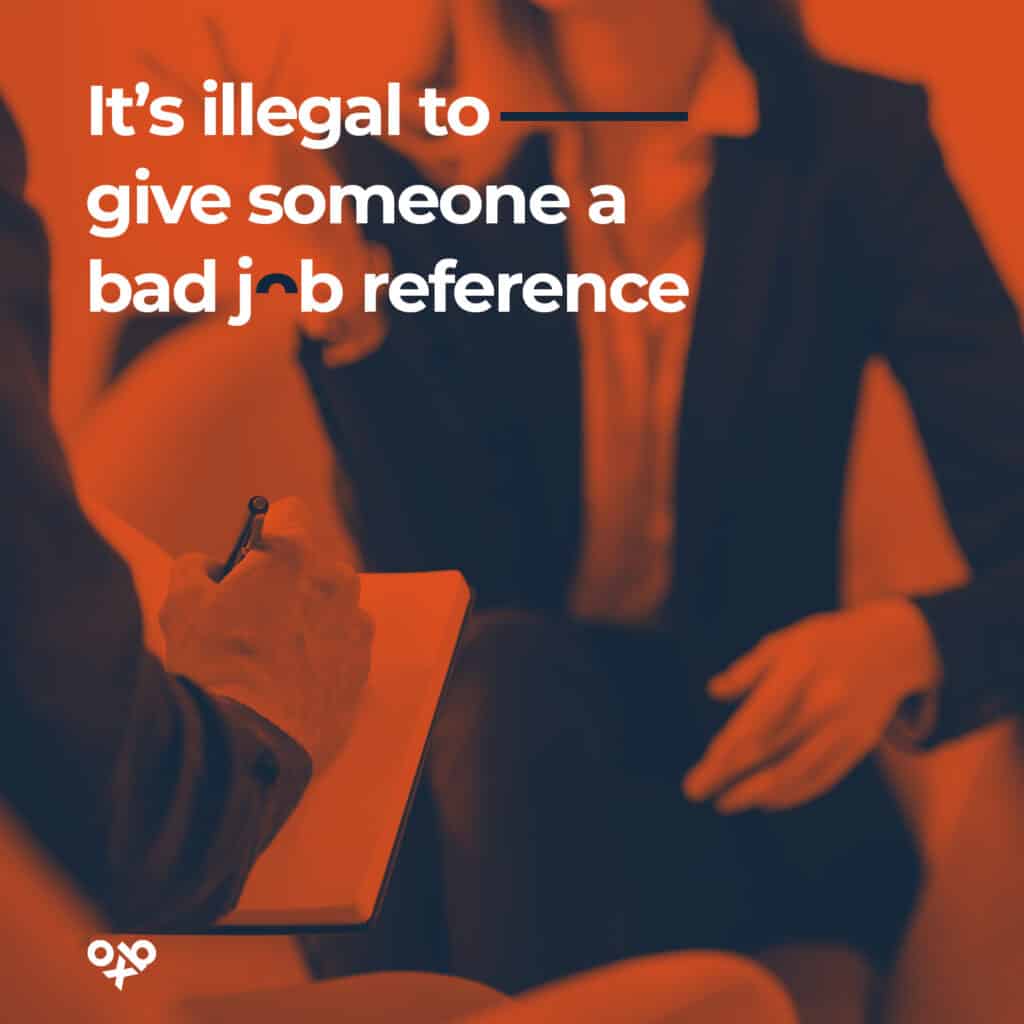Studying law is a serious business. Whether you want to study A-level Law or you’re ready to study at the degree level, you’ll know the legal system is a complex web of rules and customs, all designed to maintain peace, order, and justice.
On average, 33 new acts are passed every year, and each one can lead to dozens of new laws. And they all work to create equilibrium. It’s as Michel Foucault said: ‘Justice must always question itself.’
But as society grows, the evolving laws can sometimes be questionable, to say the least… So, it’s time to get your wig on and gavel in hand, because we’ve collected some truly weird UK laws and funny myths that all wannabe lawyers should know about. Or not. Either way, our court is now in session. Be warned, some of these hilarious, barmy, and totally weird UK laws still exist today. Yikes…
5 weird UK laws over the years
If you think some modern rules and regulations are a little odd, wait until you hear some of the UK’s strangest laws which have been passed through the annals of history – from the reign of Henry VIII right up to the present day.

1. Paying a lump sum for your facial hair
King Henry VIII imposed a beard tax that every man must pay to wear facial hair.
Designer beards, rugged manes, and tickly taches are all the rage nowadays. But in 1535, King Henry VIII made you pay for the luxury. He introduced a beard tax that lined his pockets and filled his dinner table. Moreover, the higher your social standing, the more you had to cough up.
What if you couldn’t pay? Shave it away. Thus, beards became a symbol of status and money. So, whenever you saw men gallivanting around looking like a Tudor Jason Momoa, it’s because they were loaded – or broke after spending their last pennies on their beard.
The tax didn’t last long but resurfaced with Elizabeth I, who reportedly imposed a similar levy on those with over two weeks of growth. To this day, it’s disputed whether such a tax existed in England, but we love a good mystery.
Other taxes introduced from the Tudor period and beyond included a tax on windows, bricks, wallpaper, salt, and candles to light one’s home at night. And while taxes aren’t laws per se, try refusing to pay one and see what happens – you’ll likely need a lawyer.

2. No walking cows down the street in daylight
The Metropolitan Streets Act, S7 states that ‘Cattle are not to be driven through streets within certain hours.’
Back in 1867, section 7 of the Metropolitan Streets Act forbade cattle lovers and farmers alike to walk their prized livestock during the day. Unless given permission from the Commissioner of Police himself, if you were caught rallying your precious bovines down the street between 10am and 7pm, you would have been committing a crime.
Keeping up the trend, the Highway Act 1980 made sleeping and stray cattle on the roadside a big no-no. If your stray cows were found kipping or mooching on the road, you could expect a fine coming your way. It’s also a criminal offence to allow your cattle to litter the road with mud and dung.

3. The suspicious handling of freshwater fish
The Salmon Act 1986 says you’ll be punished for ‘Handling salmon [or fish] in suspicious circumstances’.
As far as weird UK laws go, you’d probably think this one was the most bizarre. How exactly does one handle fish suspiciously? Well, it’s quite simple really, and it started with salmon, which was a valuable commodity back in 1986.
In order to regulate fisheries, and avoid illegal fishing, shady trading deals, and poaching, the Salmon Act 1986 was created. Section 32 of the act, aptly titled ‘Handling Salmon in Suspicious Circumstances, ’ aims to punish anyone receiving or disposing of salmon illegally. In recent years, the clauses in section 32 have extended to other freshwater fish, such as trout, eels, lampreys, and smelt. So, next time you’re fishing or purchasing, make it legal.

4. Attending parties dressed in police or army attire
It’s illegal to impersonate a police officer or a soldier – even at a fancy-dress party.
It’s Halloween. All you want to do is dress up, party like its 1999, and be remembered for the best costume in town. Except you opt to turn up to the party dressed in full military gear or as a law enforcer. Everybody loves a hero or a person in uniform, right? While we're talking about our fantastic military, did you know that we provide ELCAS Courses?
According to the Seamen’s and Soldiers’ False Characters Act 1906, and the Police Act 1996, it’s illegal to pretend to be part of the armed forces or the police. Both of which can lead to a custodial sentence. So, next time you think it’s a good idea… think again. What’s crazier, though is that dressing up as a paramedic is OK.

5. Using a phone to pay at a drive-through
Using your phone to pay at a drive-through while your car is still running.
You’re starving. And, like all hungry motorists, you see a Mcdonald's and make a beeline for its drive-through queue. You’re thinking about that delicious Big Mac; its cheese melting in your mouth, and then washing it down with a nice, ice-cold coke. At least, it is until you get a fine chunkier than chips.
Why? Because the law is incredibly strict about the use of phones behind the wheel of a car. Even when tapping a contactless pad with your phone at a drive-through to pay for a meal, if your engine is running and your handbrake is unlocked, you’re using your phone while managing a car and this is against the law. The penalty for breaking this law is £200 and six points on your licence. Most expensive Happy Meal ever, right?
5 weird UK laws that are actually myths
Whether through local hearsay or old wives’ tales, certain pieces of UK legislation aren’t what they seem. The history books have thrown up so many weird and wonderful laws over the years, that it can be difficult to determine fact from fiction.
Let’s take a look at five weird UK laws which, despite what you may have heard, don’t actually exist.

1. Myth: Mince pies cannot be eaten on Christmas day
Back in the 17th century, devouring delicious mince pies on Christmas Day was supposedly prohibited. While it’s widely disputed, the ban is often attributed to Oliver Cromwell’s attempt to tackle gluttony. However, many sources suggest that the pies were banned because Christmas Day fell on a legally enforced day of fasting.
Whatever the case, no such law exists today, so eat until your heart’s content. If the mince pie myth left your belly grumbling, don’t forget that at one time, Christmas was cancelled altogether. In 1647, the long parliament passed ‘An Ordinance for Abolishing of Festivals’, which abolished Christmas entirely. As you may have guessed, the people of England didn’t take kindly to it.

2. Myth: Driving in flip-flops, pyjamas, or barefoot is against the law
There’s actually some logic to this one – the feet part, anyway – and that’s to avoid danger. Have you ever tried driving in flip-flops? It’s awkward. And bare feet? Just try putting pressure on those pedals… Ouch.
According to the RAC, it’s not illegal to drive barefoot or make daft shoe choices at the wheel. However, the moment your flip-flops compromise road safety laws because they’ve gotten lodged under the clutch, you’ll wish you’d worn proper shoes. In fact, any activity that affects car control or endangers others’ lives is a big no-no.

3. Myth: Pregnant women can relieve themselves in police helmets
Whilst pregnant women in the UK may feel relieved at the sight of a police helmet, we’ve got bad news: it’s a myth that women, bursting with no lavatory in sight, can relieve themselves in a policeman’s helmet. Despite popular belief, enacting this myth will likely lead to an offence punishable by a fine under the Public Order Act 1986.
Nevertheless, that doesn’t stop bobbies from being asked the question by women and their partners who are expecting and busting.

4. Myth: It’s illegal to give someone a bad job reference
Finding a new job can be a challenge in today’s competitive market. So, when leaving one workplace to start another, you’ll want as many glowing references from your previous employers as possible. How to get them? Prove your worth, work hard and go the extra mile to deliver success. But sometimes workers do the exact opposite or burn bridges.
Sadly, they’re unaware that employers can give you a bad reference. The misconception that you can’t be sold short by your ex-boss is a myth. Smart employers know better; they can and will say your performance didn’t meet company standards. However, the reason an ex-boss might not give a bad reference is because of accidental defamation. Which is chiefly forming a false statement that harms an ex-worker’s reputation and ability to get work.

5. Myth: All your debts will be written off when you die
In January 2020, it was recorded on Finder that the average UK debt per adult was £31,643. That’s the equivalent of university student tuition over three years. Now not all debt is a horrid monster; there are good and bad debts. Good debt, such as student loans and mortgages, offer you value over time. Bad debt, such as buying seasonal fashion selections with a high-interest credit card, loses value over time.
Whatever the debt, there’s a myth in which people think their debts are written off when they die. Only they’re not. Any assets you had before your death, including your properties, such as your house, and valuables, such as jewellery, artwork, etc, will be used to pay off the debt. Even if you’ve planned and written a will, children and family won’t get a penny until all that debt has been paid.
Some strange UK Laws, right? Here are 5 non-traditional jobs you can pursue with a law qualification
There are some obvious choices, but we do know of students who’ve completed our A-Level Law course going on to work in the fashion, hospitality, and finance industries. After all, every place has its set of rules to govern, its contracts to write up, and advice and research to undertake.
Here’s our selection of five unique jobs you can pursue with a qualification in law.

1. Private Investigator
To be a good PI, you need to know the laws of the land, like the back of your hand. You might opt for this area of criminal justice, where law-based skills, including evidence collection, research, and analytics, are key to any investigation. Why not start up your own agency and cooperate with law firms nationwide?
Sound interesting? Why not further your skills with one of our online criminology courses?
2. HR Officer
HR personnel are the backbone of every successful company. When working their magic, the HR team maintain order, manages contracts of employment, and is in charge of upholding all workplace laws. Law graduates will have knowledge of how employers and employees should work with each other and know how to navigate core policies and procedures, as well as key areas of workplace and employment law.
You can kickstart a career in HR with our Level 3 Diploma in Human Resources or check out an awarding body that focuses on CIPD HR courses.
3. Teacher of Law
Fancy teaching law for a living? You can. Of course, that’s once you know the ins and outs of the legal system and its many laws. Our online A-level Law course can kickstart your journey. You might opt to broaden that knowledge at university with a law degree or directly pursue your teaching credentials, giving you the status you need to teach.
4. Journalist
What do lawyers and journalists have in common? They’re great researchers who know how to collect vital information and use it to their advantage. Lawyers use it to make breaks in their cases, whereas reporters use it to tell stories that sell papers. Using them in tandem? If you love the law and you’re well-versed, you might use that passion to write professional articles for respected magazines and journals. You can view our journalism and writing courses.
5. Recruiter
With your newfound law skills, you could work for a recruitment firm that specialises in legal positions. You’ll work with a network of legal employers, such as law firms or solicitors, and support their needs by linking them with the region's newest, brightest, and most skilled law candidates and graduates. You’ll find satisfaction in knowing your expertise is helping employers create far more effective teams.
Pathways – A-level Law
Weird laws and outrageous myths – being a lawyer or solicitor can be met with its fair share of silliness. But it can also be filled with challenges, satisfaction, and exciting career prospects.
Are you considering a career in law? Our A-level Law course is Edexcel accredited and has helped hundreds of lawyers-in-training off to a flying start on their legal journeys. You can gain your A-Level Law qualification with Oxbridge from home, studying in your own time, and then move on to study for a degree at university. The world is your oyster, so how will you see justice done?
